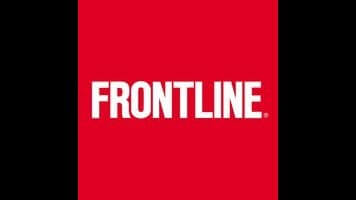Daily fantasy sports logic is even more specious under Frontline’s spotlight

On the off chance there are any Americans who somehow missed the billboards, subway turnstiles, TV commercials, banner ads, cable partnership announcements, radio spots, or podcast sponsorships that together made up a relentless $230 million media blitz preceding the most recent NFL season, they ought to know that there are a couple of tenacious tech companies that would really like their money—but purely for “entertainment.” For over a year, PBS and The New York Times have collaborated on a joint investigation into online offshore sports betting havens, as well as DraftKings and FanDuel, the legally dubious titan sites that, for the time being, dominate the daily fantasy industry. Findings from those inquiries, including an alleged insider trading scandal, have caught the attention of state and federal officials, some of whom have called into question the adequacy of fantasy and betting sites’ reliance on self-regulation.
“The Fantasy Sports Gamble,” directed and co-written by Frank Koughan, is Frontline’s one-hour synopsis of how a loophole in the well-meaning Unlawful Internet Gambling Enforcement Act of 2006 laid the groundwork for daily fantasy’s proliferation, and how more old-fashioned “legal” foreign betting sites are using domestic data centers to seemingly skirt U.S. federal laws. To illustrate the complex, jurisdiction-hopping digital and financial activity that fuels the industry, correspondent Walt Bogdanich consults investigative reporters James Glanz and Agustín Armendariz to physically track down the operatives of illegal online gambling. It’s a rabbit hole that travels through fake retail sites, the Curaçaoan Ministry of Economic Development, and servers across the world, including many illegally within the United States. Bogdanich also meets with politicians, attorneys, consultants and experts to consider the rationale for fantasy sites’ exemption from laws prohibiting other types of gaming.
First, a history of what went wrong from the UIGEA sponsor himself, former Iowa Republican representative Jim Leach: “The daily idea of fantasy sports was not conceived of when the bill was passed, partly under the assumption fantasy sports are kind of a fun activity that were a very modest proportion in size.” According to an industry lobbyist tasked with fighting the original bill, seasonal fantasy games were spared due to a grassroots call to keep them exempt. With firm pressure from the NFL to pass effective anti-betting legislation, an accommodation was made in the interest in moving the bill along.
Out of reach from federal prosecutors, weekly fantasy sites plowed through the small niche intended for office pools. Poker players spilled over from a then-illegal game to a legal (or at least more accessible) one, applying similar strategies and ultimately cultivating a similar insider ring of professional winners to feed on what one player refers to as “fish.”
Nothing, however, exempts sites like DraftKings from state laws prohibiting online gambling. In one of the more entertaining sit-downs, FanDuel CFO Matt King tries to tap-dance around common sense by arguing daily fantasy sites cannot be compared to games like poker. “Every time that you talk to our users, what comes through loud and clear is the fact we’re an entertainment product.” Given the sheer quantity of state attorney generals recently moving to clarify their position against the sites, it’s astounding that the brainy-looking King isn’t better prepared with a legally convincing answer. Instead, he curtly resorts to the dated and insubstantial ‘Miss Cleo’ defense, apparently unmoved by the fact all gambling is by definition entertainment. Whether or not something is even a game of skill—King’s other primary defense—is not a factor in many of the states challenging FanDuel’s operations.
Even Bryce Mauro, a DePauw senior and FanDuel wunderkind who moves hundreds of thousands of dollars back and forth, seems to know FanDuel’s position is untenable, or at least a minefield to address.
Bogdanich: You told me that FanDuel doesn’t like the word ‘gambling’ associated with its brand, and you told a story that they contacted you and asked you not to use that word. Tell me what happened.
Mauro: I’d prefer not to answer that….because I don’t want to do anything to upset the industry. That’s my job at stake, pretty much.
Even more astounding is the sight of a different, supposedly legal and above board company in Curaçao tossing its computers in a truck and fleeing for a government building at the sight of a reporter.
From an outsider’s perspective, the “gamble” alluded to in the title looks and sounds like the same one companies like Uber take when they land in a new market: launch hard, claim immunity from local industry regulations, and litigate the hell out of any government or special interest attempts to reset the rules. For daily fantasy sites, it’s looking more and more like a losing hand.
Stray Observations
- It’s not hard to imagine how a severe drug addict loses everything, but for most people, throwing away thousands of dollars while sober is unconscionable. I don’t think I really empathized with gambling addicts until I listened to “Stochasticity,” a devastating 2009 episode of Radiolab. It’s terrifying to think that a small chemical change in the brain can result in such a total loss of control.
- Matt Paxton’s 2012 conversation with the Sklar Brothers about his gambling addiction is worth a listenen, too.
- PBS is coming to the fraternity house to visit, and no one takes the time to pick up the literal garbage off the goddamn living room floor?
- Want the CliffNotes version? John Oliver’s 20-minute segment about the daily fantasy industry on Last Week Tonight is almost just as informative.